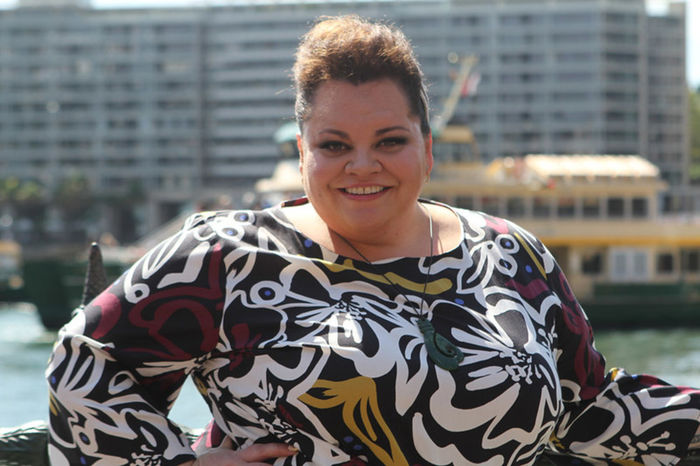‘We need to have these conversations in our living rooms’: Jara Phattey on HIV awareness
Scotia Smith discusses HIV awareness, the stigma surrounding sexual health, and the need for culturally tailored healthcare with NHS nurse and activist Jara Phattey

“My mum’s a sexual health nurse,” I announced to my peers with pride at 11 years old. But looking around at my school friends, who had all gathered to give a short speech on their parents’ careers, I was met with a soundless audience, and a multitude of awkward looks. From a very young age, I learnt that topics involving sexual health are usually discussed in lowered voices, hushed whispers or complete silence. However, Jara Phattey’s attitude is a complete juxtaposition to this usually uncomfortable subject matter.
She walks into the bustling cafe with all the confidence a woman of her professional position should adorn. Sitting down to join me at the table, she is all smiles, bright colours and expressive hand gestures as she unabashedly explains her job working in a NHS sexual health clinic where she deals with patients with “syphilis infections, HIV and more recently Mpox.” She makes it clear early on in the interview that she is very aware of the stigma surrounding conversation on sexual health and aims to eliminate it through educating people. “People need to understand that HIV medication is just one tablet a day. For the majority of our patients nowadays, you can be diagnosed early, and within three months, six months, you are fully suppressed.”
More open conversation isn’t the only thing that can help normalise discussions about sexually transmitted infections according to Phattey. She believes that GP surgeries could do a lot more to help towards this. Only sexual health clinics test people for HIV routinely, despite the amount of blood tests taken at the GP or A&E. “By the time we see some patients at sexual health clinics,” she explains with a repressed anger, “we give them a late HIV diagnosis, and usually all of them have seen their GPs or gone to A&E before and they haven’t been offered a test.”
The new British HIV Association guidelines involve an opt-out policy which means HIV testing will become routine in A&E unless a patient specifically decides to opt out. She tells me that “this policy has been implemented in Birmingham and London and has changed the narrative from patients having to ask to be tested for HIV to it being incumbent on the patients to say, ‘I don’t want to be tested for this.’” However, these new policies aren’t being introduced into GP practices, and until they are Phattey argues that GPs simply aren’t fulfilling their role and being utilised enough to combat HIV. “Until very recently, all we had in the UK was sexual health clinics or individuals going to GPs and requesting a HIV test themselves.” However, despite being the main source of HIV assessment, sexual health clinics are plagued with their own issues.
“Until very recently, all we had in the UK was sexual health clinics or individuals going to GPs and requesting a HIV test themselves”
She names three major reasons for the problems these specialist centres have. “Firstly, these clinics have a fragmented nature. Look at London, for example, there are different services for heterosexual and homosexual people. It’s not under one roof.” She continues, identifying the “Health Lottery” within British sexual health care facilities. “The level of help you receive depends on where you live; it depends on who your service providers are. We get so many patients from outside our catchment area. This doesn’t mean their services aren’t available. They are, but they aren’t as accessible as we are.” However, the point she emphasises the most is funding. “Sexual health clinics are severely underfunded and that’s the bottom line. As soon as we get the adequate funding we need, real change can be made.”
As well as being a major force within the NHS, Phattey is also a vocal activist within her own community to help bring awareness to HIV. She writes speeches and holds meetings for asylum seekers, people from Sierra Leone (where she was born), and other members of the African community here in Britain who have been newly diagnosed with HIV.
“Healthcare is free and we know that, but it might not be accessible to me as a black person”
When asked about this work, the generalisation of ‘African community’ is not lost on Phattey. “We tend to bundle all African communities, black communities as one. My knowledge, my culture, my needs, are completely different from a black African who’s from Nigeria, although we’re all from West Africa. Until we really understand and tailor our health promotion materials according to people’s cultures, it doesn’t work and that’s what I’m trying to do but it needs to start being done on a much wider scale.”
For Phattey, this is a systemic issue as well as a personal one. One of the main motivators for her activism is the knowledge that black Africans are disproportionately affected by HIV in the UK. Despite Black, Black British, Black Welsh, Caribbean or African people only accounting for 2.5% of the UK population (as stated in the 2021 census), 30.2% of HIV sufferers are Black African. The reasons for this are complex, Phattey tells me. “Healthcare is free and we know that, but it might not be accessible to me as a black person. There are a multitude of complex factors that affect us from accessing services.” After working in the field for such a long time, she’s identified that fear is a leading factor in black Africans not attending services. “They don’t see people who look or sound like them in powerful positions. They’re frightened that their culture won’t be understood or respected.” As a woman who migrated to the UK herself she understands how there could also be financial constraints that impose on healthcare access.“Getting to GP surgeries, hospitals, clinics etc can cost a lot of money that is deemed more beneficial to be spent elsewhere.”
The Cambridge Student Union provides free sexual health supplies to students, mirroring Phattey’s desire to remove barriers to resources. “We need to have these conversations in our living rooms. We need to have these conversations in our communities, wherever we are, we need to be having these conversations.” As I exited the cafe, Phattey’s parting words made me reminisce and think about my younger self. If I could go back and tell that younger version of myself to introduce her mum not just as a nurse, but as a sexual health nurse, I would. Maybe I’d have been able to start to normalise some crucial conversations.
 News / Caius mourns its tree-mendous loss23 December 2025
News / Caius mourns its tree-mendous loss23 December 2025 News / Clare Hall spent over £500k opposing busway 24 December 2025
News / Clare Hall spent over £500k opposing busway 24 December 2025 Comment / Yes, I’m brown – but I have more important things to say22 December 2025
Comment / Yes, I’m brown – but I have more important things to say22 December 2025 Comment / The ‘class’ of Cambridge24 December 2025
Comment / The ‘class’ of Cambridge24 December 2025 Interviews / Politics, your own way: Tilly Middlehurst on speaking out21 December 2025
Interviews / Politics, your own way: Tilly Middlehurst on speaking out21 December 2025









